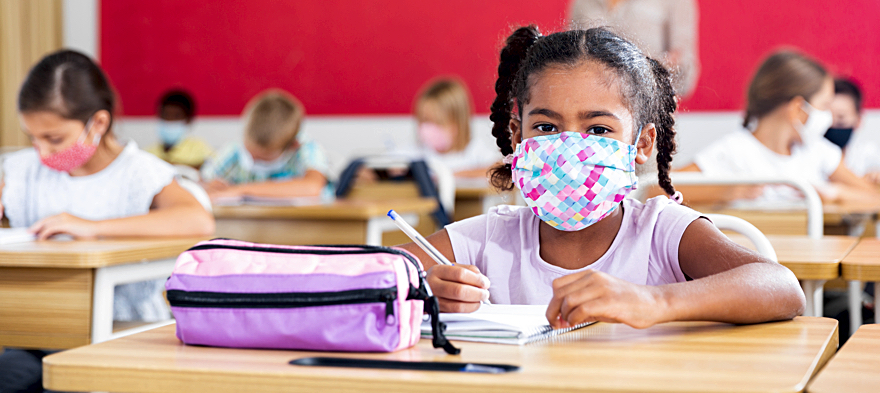
Jan 4, 2022 12:00:00 AM
The COVID-19 pandemic, coupled with political and social unrest, has deeply disrupted the lives and learning experiences of most students. It has created an urgent need to address long-standing opportunity gaps and has highlighted the importance of providing resources that support student achievement, social-emotional learning, and physical and mental well-being. This urgency for action to address the impacts is valid, but it has also created a noisy environment of potential options of what might be best for students. It’s critical, now more than ever, for decisions to be grounded in solid research.
In the coming year, NWEA researchers are working in partnership with university scholars, school districts and foundations to continue to provide rapid-response research that helps inform recovery policies, identifies high-impact programs and innovations, and drives evidence-based decision making to advance equitable opportunities for all students.
Our latest research finds that at the start of the 2021-22 school year, student achievement was lower compared to a typical year, with larger relative declines in math (9 to 11 percentile points) than reading (3 to 7 percentile points). The impacts of the pandemic were even larger among students of color and students in high-poverty schools, especially in the youngest grades we studied. However, the magnitude of these declines is roughly consistent with those we observed in the spring of 2021. In other words, we find continued evidence of significant unfinished learning, but the gaps between current and pre-pandemic achievement appear to have stabilized and have not widened since spring.
In addition to comparing student achievement this fall to historical trends, we also used longitudinal analyses to gauge how growth in reading and math during the last two years of the pandemic compares to the level of growth we might expect under more typical circumstances. We find that reading gains between fall 2019 and fall 2021 neared pre-pandemic growth rates; but, math gains were well-below average. This result suggests that [pullquote]school-related disruptions continue to have a more significant impact on students’ acquisition of math skills/content compared to reading[/pullquote] and highlights the need for continued focus on supporting the development of math skills.
Despite these daunting trends in student achievement, with significant federal funding to deploy, education leaders have the rare opportunity to resource more equitably. Near-term recovery efforts can lead to long-term improvement if states and districts invest resources in evidence-based, holistic programs, particularly those that demonstrate evidence to accelerate learning for historically underserved students.
Efforts like the EdResearch Recovery Project, an Annenberg Institute at Brown University and Results for America collaboration, tap leading experts from across the country to synthesize timely research to inform recovery strategies. For example, their latest work offers recommendations for schools to meet the needs of students coping with trauma and toxic levels of stress, advancing student learning through academic summer programs, and structural supports to promote teacher well-being.
At NWEA, we’ve teamed up with Harvard University’s Center for Education Policy Research and CALDER, at the American Institutes for Research, to partner with a consortium of districts across the United States to provide rapid and localized information about tutoring, after-school programs and other interventions educators hope will help children regain ground in reading, math and other core subjects. Such partnerships help leaders adjust nimbly, but also provide evidence for long-term change.
As the pandemic lingers, we continue to see extensive unfinished learning and opportunities gaps widen. In the years ahead, data on student academic, social, and emotional progress will be critical to understanding the road to recovery and will be essential to target evidence-based interventions to students who need them the most now and in the future.
Few issues in education spark more tension and debate than standardized testing. Are they a tool for equity or a burden on students? A necessary check on school systems or a flawed measure of...
Charter schools are public schools with a purpose. Operating independently from traditional school districts, they're tuition-free, open to all students, and publicly funded—but with more flexibility...
Despite the benefits of a diverse teaching force, prospective teachers of color fall out of our leaky preparation pipeline at every stage: preparation, hiring, induction, and retention. Here’s what...
Ed Post is the flagship website platform of brightbeam, a 501(c3) network of education activists and influencers demanding a better education and a brighter future for every child.
© 2020-2025 brightbeam. All rights reserved.
Leave a Comment